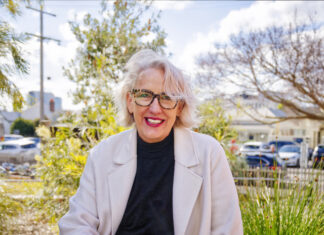The Geelong region urgently needs local solutions to prepare for the imminent impacts of climate change, according to the region’s leading environmental organisation.
Geelong Sustainability has responded publicly to the release of the National Climate Risk Assessment (NCRA) last month, drawing on the data gathered within the report to formulate a number of necessary local actions.
The NCRA states Australia is currently experiencing “compounding and cascading hazards”, which will only increase, and that “an escalation of risks in one system is highly likely to have a ripple effect across sectors, services and structures”.
Geelong Sustainability board member Neil Plummer spent more than three decades working at the Bureau of Meteorology, the last eight of those as the head of the bureau’s climate services.
Mr Plummer said now the data had been collected and the report released, it was important that governments – federal, state and local – acted now.
“We know that because of climate change that the frequency and intensity of severe weather events are increasing, and that’s going to continue for decades,” he said.
“We need to urgently reduce greenhouse gas emissions. But because the climate is going to change – no matter if we stop those emissions tomorrow – we need to adapt.
“And that adaptation requires very careful planning and some very big investment decisions.”
Mr Plummer said in addition to rising sea levels and extreme fire risk, one of the most significant climate impacts in the Geelong and Surf Coast region will be more frequent and intense heatwaves.
At three degrees of global warming, the average number of days of severe or extreme heatwave conditions in the region are expected to increase by up to two fold, he said.
Mr Plummer said a number of local solutions, such as upgrading homes to cope with extreme heat, were desperately needed.
Other measures included increasing disaster funds for local councils and organisations, improving health and safety regulations and ensuring the health system can cope with climate-driven emergencies.
Geelong Sustainability chief executive Jane Spence said failing to meet these challenges would have dire consequences, especially for the community’s most vulnerable.
“Climate extremes are putting lives at risk, especially for vulnerable groups such as older Australians, people with disabilities, and those living with chronic illness,” she said.
“This is about protecting lives and building climate resistance where it’s needed most.”







